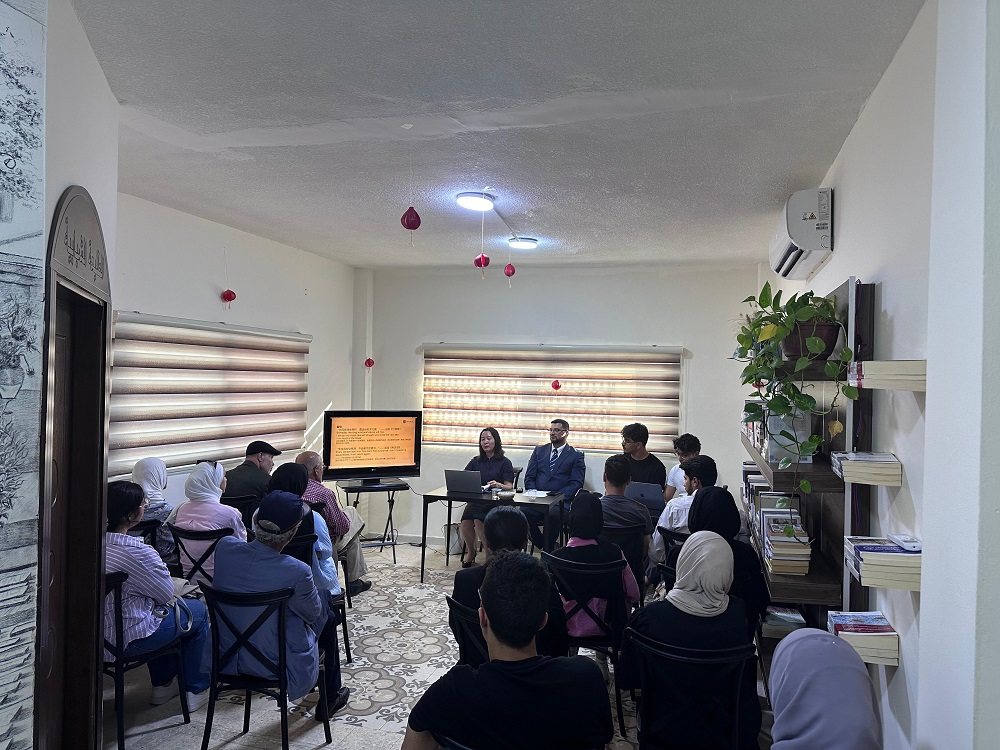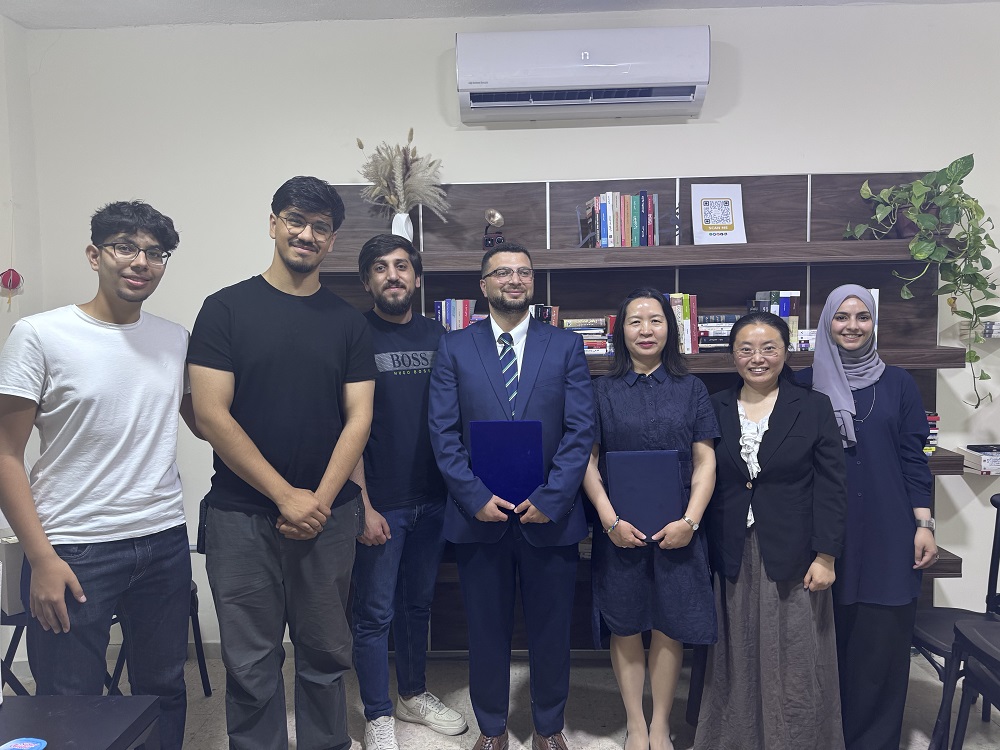Chinese Director of TAG-Confucius Institute Was Invited to Give a Lecture on Chinese Literature at Vanguard Youth Cultural Association
Chinese Director of TAG-Confucius Institute Was Invited to Give a Lecture on Chinese Literature at Vanguard Youth Cultural Association
On May 21, Dr. Yang Songfang, Chinese Director of TAG-Confucius Institute, was invited to give a lecture on Chinese Literature at Vanguard Youth Cultural Association in Amman.
Approximately 30 people attended the event, including Mr. Hamzeh, Manager of the Association, Ms. Tasneem, the event director, Ms. Liu Yi, a teacher from China Cultural Center in Amman, Dr. Mahmoud Abdullah, a local Chinese language teacher at The University of Jordan, students from Jordanian universities and literature enthusiasts.
Dr. Yang’s lecture, titled “Chinese Literature: A Poetic Dialogue across Time and Space”, provided a systematic overview of the development and artistic charm of Chinese literature. The lecture was divided into three parts:
The first part was an overview of Chinese literature. Dr. Yang introduced classical works such as The Book of Songs, The Songs of Chu (Chu Ci), The Analects of Confucius, and Tao Te Ching, which laid the foundation for Chinese literary thought. She highlighted the Han Dynasty Yuefu poem The Peacock Flies Southeast, the representative works of Tang Dynasty poets Li Bai, Du Fu, Bai Juyi and Wang Wei.
She then discussed the literary achievements of Song, Yuan, Ming and Qing dynasties, focusing on the “Four Great Classical Novels”—Romance of the Three Kingdoms, Outlaws of the Marsh, Journey to the West, and Dream of the Red Mansions, as well as the development of Song ci poetry and traditional Chinese opera. In the modern era, she emphasized the Vernacular Literature Movement, particularly Lu Xun’s pioneering short story Diary of a Madman. 
The section concluded with notable works of contemporary literature, including Mo Yan’s “magical rural” narratives such as Red Sorghum: A Novel of China, Frog, and Sandalwood Death; Yu Hua’s To Live, Brothers, Chronicle of a Blood Merchant, and Cries in the Drizzle; and Liu Cixin’s science fiction masterpiece The Three-Body Problem.
The second part focused on the international dissemination of Chinese literature. Dr. Yang shared a selection of literary works that have been translated into Arabic and other languages, covering classical masterpieces, modern literary works and contemporary bestsellers. Through these examples, she highlighted the broad space for Chinese literature to communicate with the world.
In the third part, at the special request of the organizer, Dr. Yang provided an in-depth analysis of Yu Hua’s novel To Live, engaging the audience in a discussion on the philosophical meaning of “living”. Widely regarded as a contemporary masterpiece that explores the essence of survival, To Live is also Yu Hua’s first work to be translated into Arabic, which has had a significant influence on Arab readers.
At the end of the lecture, Dr. Yang encouraged the audience to continue exploring Chinese literature through reading, translation and intercultural exchange. She emphasized: “Literature, as a bridge for dialogue among civilizations, not only carries the charm of language but also conveys the history and emotions of the nation. ‘Stories know no borders’, and literature allows us to see the shared emotions and destinies of humanity, so that we can get closer in understanding and connect in resonance.”
In addition, Dr. Mahmoud Abdullah shared insights on the characteristics of the Chinese language, the significance and practical techniques of translation, further broadening the perspective on cross-cultural communication of literature.
At the end of the event, Dr. Yang Songfang distributed a selection of classic Chinese literary works for the guests to read and enjoy. She also wrote famous literary quotes in both Chinese and English for the guests as keepsakes, which sparked active interaction and a harmonious atmosphere.
This lecture is not only a vivid practice of cultural exchange between China and Jordan, but also injects new vitality into the promotion and understanding of Chinese literature in Jordan.


